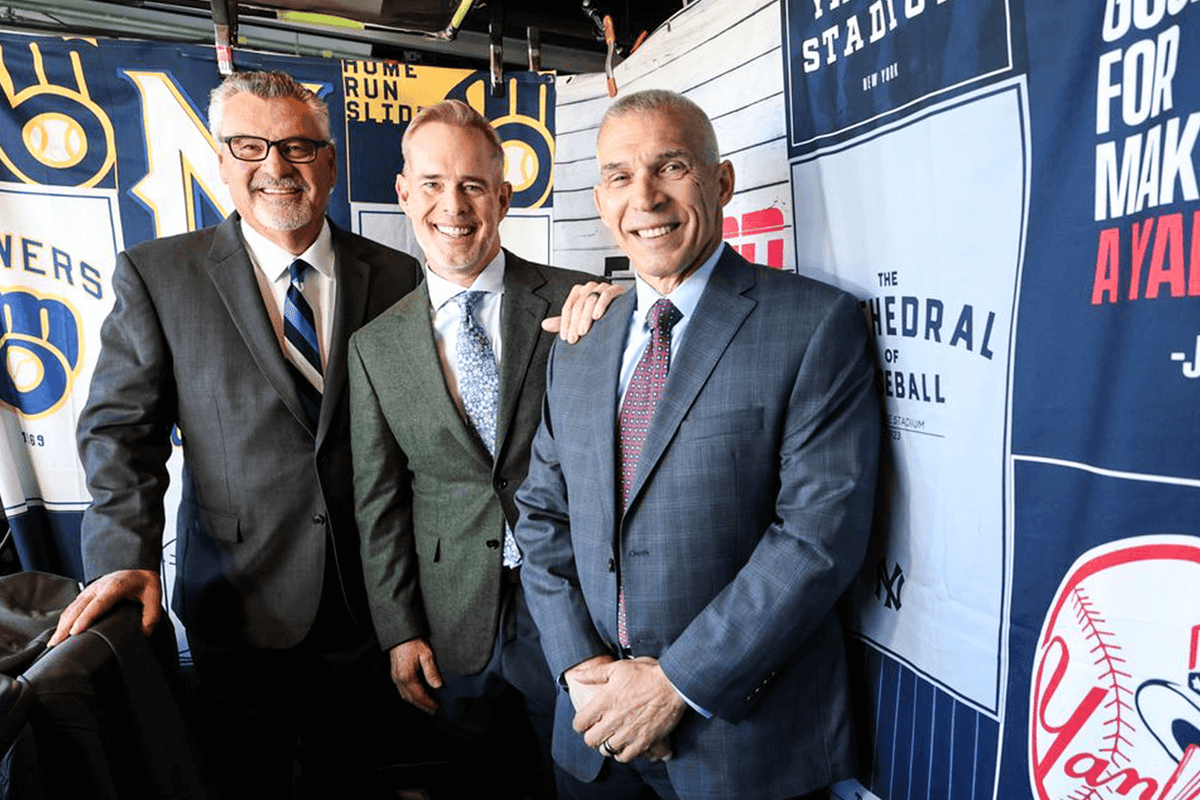Joe Buck’s Return to Baseball Broadcasting
When 27-year-old Joe Buck stepped into the iconic booth for the 1996 World Series at the legendary Yankee Stadium, he was already seen as the quintessential nepo baby, long before the term gained traction. As the son of famed play-by-play announcer Jack Buck, Joe was raised amidst the ambiance of ballparks, making his full-time major league debut at the tender age of 21, calling games for his father’s team, the St. Louis Cardinals. Starting with the calls of the formidable Derek Jeter-led New York Yankees dynasty, Joe would go on to become the voice of October—and sometimes November—on Fox for nearly a quarter of a century, all while navigating the complexities of the social media landscape.
However, after 24 World Series, Buck decided to step back. The allure of ESPN’s “Monday Night Football,” a staggering $15 million annual salary, and the desire for more quality time at home with his young twin sons and his second wife, fellow ESPN sportscaster Michelle Beisner-Buck, proved too enticing to resist.
Since he closed his scorebook following his 24th Fall Classic in November 2021, Buck had not participated in a national baseball game—until Thursday’s Opening Day at Yankee Stadium. With the March air carrying that familiar Bronx October chill, Buck’s voice instantly created a sense of nostalgia and familiarity.
As the Yankees’ closer, Devin Williams, faced off against the Brewers’ former NL MVP Christian Yelich, Buck concluded the game with a simple yet powerful call: “Struck him out!” he exclaimed. “And the Yankees win it!” Then, he allowed a moment of silence, letting the visuals convey the excitement of the victory.
“I felt totally comfortable,” Buck shared with The Athletic in the press box afterward. “It felt as if I had never left.” His voice resonated with that same smoothness, delivering a seamless call at a time when both ESPN and Major League Baseball needed a steady presence.
This past month has been anything but calm between ESPN and MLB, and Buck’s return likely won’t remedy that tension. ESPN recently opted out of the final three seasons of its $550 million annual contract, prompting MLB Commissioner Rob Manfred to criticize the network as a “shrinking” platform. He also voiced concerns that ESPN was not treating baseball with the respect it deserved, leading to MLB’s decision to opt out of its side of the agreement as well. Yet on Opening Day, all of this was momentarily set aside.
From the outset of the broadcast, ESPN took a refreshing approach by not centering the narrative around itself. The understated presentation of its star play-by-play announcer was simply perfect.
This winter, a top ESPN executive whom Buck greatly respects, Mark Gross, reached out to him and invited him to call Opening Day at Yankee Stadium. Buck didn’t hesitate to accept the offer—a generous gesture, though one that came with the understanding that Buck is set to earn $75 million over five years, so it’s not entirely altruistic.
In preparation for Thursday’s game, Buck approached it as if it were a Game 7, studying and refreshing his knowledge after years away. (He did make a cameo calling a local Cardinals-Cubs game last season alongside Chip Caray, who also comes from a broadcasting lineage.) Gross allowed Buck to select his broadcasting partners, and he chose the Brewers’ long-time analyst Bill Schroeder and former Yankees manager Joe Girardi. During the broadcast, Buck affectionately referred to them as his “two first-round picks,” hinting at a potential future career in sports management.
“I loved working with Joe and Bill,” Buck remarked afterward, expressing his surprise at how effortlessly they made the experience feel.
As the lead announcer, Buck demonstrated that the best broadcasters know how to enhance the viewer’s experience without overwhelming it. In the bottom of the first inning, when Yankees’ leadoff man Austin Wells sent a solo shot over the right field porch, Buck emphasized the moment with a nostalgic “See ya!”—a nod to Michael Kay, the voice of the Yankees on the YES Network.
In the second inning, when Yankees’ shortstop Anthony Volpe hit a wind-assisted solo home run, Buck kept the call succinct, simply stating, “This ball will carry and go!” Later, in the third inning, as the Brewers’ Vinny Capra launched his own solo shot, Buck skillfully referenced Capra’s six home runs in the spring training season.
When the Yankees widened their lead in the seventh inning, thanks to a fortunate Aaron Judge double that deflected off third base, Buck’s excitement was palpable: “Hits the bag!” His tone evoked memories of postseason thrills from years gone by.
There was a remarkable rhythm to the game that many top-tier broadcasters could learn from. Buck, Schroeder, and Girardi effortlessly wove together the storylines from spring training, avoiding the trap of rehashing outdated narratives for an audience that is well-versed in baseball.
Throughout his career, Buck has navigated the rise of the internet, an increasingly polarized environment fueled by social media. Over the years, he has faced accusations of nepotism and criticisms of perceived bias against various teams, even though if legendary announcer Vin Scully had been in the spotlight during this era, he too would likely face scrutiny on platforms like X. (“Why does he work solo? His stories are too lengthy!” @cryforhelp11291927 might tweet).
Buck has consistently measured his words and exclamations, earning his place among the all-time greats of baseball broadcasting, alongside the likes of Scully and his father, Jack. His journey seems destined to culminate in the Ford C. Frick Award and a well-deserved place in the National Baseball Hall of Fame.
“He strikes a perfect tone,” Gross noted, reflecting on Buck’s unique ability to connect with audiences.
On Thursday, Buck predictably delivered once again. The voice of baseball for a generation was back in action, reminding us all that sometimes, we don’t realize what we have until it’s going, going, gone.
(Photo: ESPN Images)

